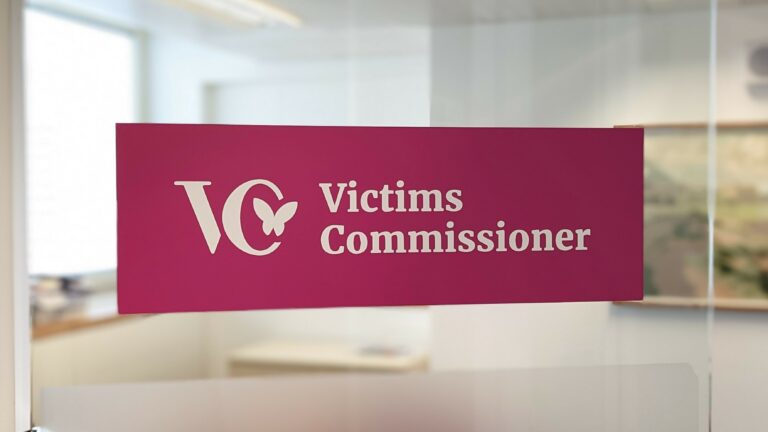Anti-Social Behaviour Awareness Week: A time to reflect, shift focus and act – because victims deserve nothing less

With Anti-social Behaviour Awareness Week now underway (30 June to 6 July), the Victims’ Commissioner reflects on what must change to better recognise and support victims of persistent anti-social behaviour.
I cannot count the number of times I’ve heard anti-social behaviour (ASB) dismissed as ‘low-level’. But for those living with it, day in and day out, there is nothing ‘low-level’ about it. This label is not only misleading – it’s damaging. It trivialises the suffering of victims and allows the system to look away.
I speak as someone who knows this first-hand, not just as Victims’ Commissioner, but as someone who has lived through it. For months, my family and I were harassed and tormented; our home was no longer a haven but a pressure cooker. We begged for help, but it never came.
Then, tragedy struck. Eighteen years ago, my husband Garry was brutally murdered in front of our three young daughters. Sadly, our story is only unique in its devastating outcome. The relentless harassment, the ignored pleas for help, the sense of powerlessness – these are the grim realities countless ordinary families face every day.
Throughout the years, I’ve heard from numerous victims whose lives have been turned upside down by persistent and targeted ASB. It’s a relentless drip of fear and disruption that leaves people feeling unsafe in their own homes and invisible when trying to find a resolution.
In 2019, I published Living a Nightmare – a report that shone a light on just how many victims were being passed from service to service. It was like a game of pass the parcel, except the ‘parcel’ was a human being in distress, and the music never stopped.
When I returned as Victims’ Commissioner, I revisited the issue in my 2024 report Still Living a Nightmare. Sadly, the picture had barely changed. I spoke to victims who had been trapped in cycles of ASB for five or more years with no sign of relief. And alongside their ordeal of the ASB itself came another constant refrain: the struggle to be heard.
Victims told me of their exhausting journeys through housing associations, councils and police, a dizzying maze that often felt every bit as exhausting and demoralising as the ASB itself.
One of the most pressing issues is the lack of access to support. Victims of persistent ASB are regularly told they aren’t eligible for help under the Victims’ Code. This is often not true and must be put right. That’s why I’m calling for the Victims and Courts Bill, currently making its way through Parliament, to make it explicit that victims of persistent ASB are entitled to the rights and entitlements set out in the Code.
We also need to change how we assess harm. Right now, incidents are too often treated in isolation – as if one neighbour dispute is unrelated to the last. This failure to see the bigger picture puts victims at greater risk. It’s like watching smoke rise and refusing to look for the fire.
That’s why I’m calling for a statutory duty on police to conduct a harm impact assessment after the third ASB call-out within six months. This would help build a proper picture of ongoing abuse – and ensure earlier, more effective intervention.
Another safeguard, the ASB Case Review (previously called the Community Trigger) is meant to give victims a route to redress. But many don’t know it exists and those who do often find it opaque, inconsistent or ineffective. In too many areas, it feels like the system marking its own homework.
We need to give this process real teeth. That means placing the Review threshold in statute, so victims face no extra hurdles or local caveats. Every review should also be chaired independently, with victims offered a meaningful voice throughout.
It has been nearly 20 years since I lost Garry – and my daughters lost their father. That the challenges we faced back then still persist is heartbreaking. Victims are still falling through the cracks, still shouting into the void, still waiting for someone to join the dots.
But I believe change is possible. We are seeing growing recognition that things cannot go on as they are. That for the many victims targeted endlessly, ASB couldn’t be further away from ‘low-level’. That not just our town centres deserve better – victims deserve better.
Let this week be a turning point, a moment to finally put victims at the centre of ASB reform = where they have always belonged.
- Read the Victims’ Commissioner’s 2019 ASB report Living a Nightmare
- Read the Victims’ Commissioner’s 2024 ASB report Still Living a Nightmare
